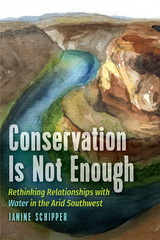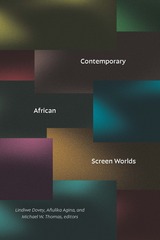16 start with R start with R
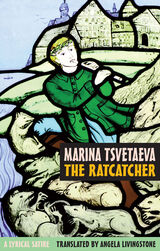
The Ratcatcher, Marina Tsvetaeva's masterpiece, is a satirical version of the Pied Piper of Hamelin legend in the form of a complex narrative poem that bears all the marks of Tsvetaeva's poetic style. Written in 1926, it was not available in Russia until 1965, and has hitherto been virtually unknown in English.
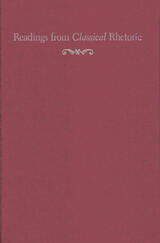
Here, for the first time in one volume, are all the extant writings focusing on rhetoric that were composed before the fall of Rome.
This unique anthology of primary texts in classical rhetoric contains the work of 24 ancient writers from Homer through St. Augustine, including Herodotus, Thucydides, Plato, Aristotle, Cicero, Quintilian, Tacitus, and Longinus.
Along with many widely recognized translations, special features include the first English translations of works by Theon and Nicolaus, as well as new translations of two works by important sophists, Gorgias’ encomium on Helen and Alcidamas’ essay on composition.
The writers are grouped chronologically into historical periods, allowing the reader to understand the scope and significance of rhetoric in antiquity. Introductions are included to each period, as well as to each writer, with writers’ biographies, major works, and salient features of excerpts.
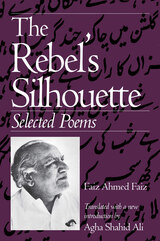

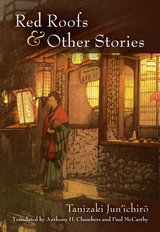
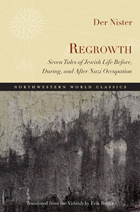
Der Nister paints a sympathetic portrait of the father, a member of the Jewish Council, even though he collaborates with the Nazis in a misguided attempt to help his people. To repair the father’s mistake, his daughter joins the resistance, seduces a traitor, and delivers him to his death. Accounts are settled within the Jewish community. The Nazi enemy is largely passed over in the silence his infamy deserves. Der Nister’s characters are crafty, and they do not hesitate to use force when necessary. After the defeat of the Nazis and Soviet takeover, Der Nister suggests, the maneuvering will continue. The morally complex characters and richly layered stories of Regrowth ultimately reclaim a more nuanced view of crimes still not fully reckoned.
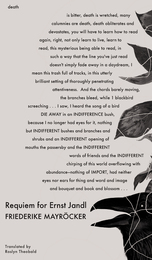
Austrian poet and playwright Ernst Jandl died in 2000, leaving behind his partner, poet Friederike Mayröcker—and bringing to an end a half century of shared life, and shared literary work. Mayröcker immediately began attempting to come to terms with his death in the way that poets struggling with loss have done for millennia: by writing. Requiem for Ernst Jandl is the powerfully moving outcome. In this quiet but passionate lament that grows into a song of enthralling intensity, Mayröcker recalls memories and shared experiences, and—with the sudden, piercing perception of regrets that often accompany grief—reads Jandl’s works in a new light. Alarmed by a sudden, existential emptiness, she reflects on the future, and the possibility of going on with her life and work in the absence of the person who, as we see in this elegy, was a constant conversational and creative partner.
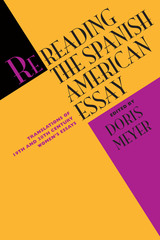
Latin American intellectual history is largely founded on essayistic writing. Women's essays have always formed a part of this rich tradition, yet they have seldom received the respect they merit and are often omitted entirely from anthologies.
This volume and its earlier companion, Reinterpreting the Spanish American Essay: Women Writers of the 19th and 20th Centuries, seek to remedy that neglect. This book collects thirty-six notable essays by twenty-two women writers, including Flora Tristan, Gertrudis Gómez de Avellaneda, Clorinda Matto de Turner, Victoria Ocampo, Alfonsina Storni, Rosario Ferré, Christina Peri Rossi, and Elena Poniatowska. All of the essays are here translated into English for the first time, many by the same scholars who wrote critical studies of the authors in the first volume. Each author's work is also prefaced by a brief biographical sketch.
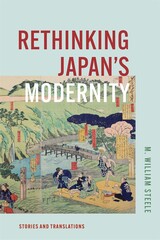
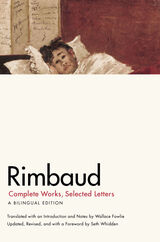
The first translation of the poet's complete works when it was published in 1966, Rimbaud: Complete Works, Selected Letters introduced a new generation of Americans to the alienated genius—among them the Doors's lead singer Jim Morrison, who wrote to translator Wallace Fowlie to thank him for rendering the poems accessible to those who "don't read French that easily." Forty years later, the book remains the only side-by-side bilingual edition of Rimbaud's complete poetic works.
Thoroughly revising Fowlie's edition, Seth Whidden has made changes on virtually every page, correcting errors, reordering poems, adding previously omitted versions of poems and some letters, and updating the text to reflect current scholarship; left in place are Fowlie's literal and respectful translations of Rimbaud's complex and nontraditional verse. Whidden also provides a foreword that considers the heritage of Fowlie's edition and adds a bibliography that acknowledges relevant books that have appeared since the original publication. On its fortieth anniversary, Rimbaud remains the most authoritative—and now, completely up-to-date—edition of the young master's entire poetic ouvre.

The greatest classic of Sindhi literature presented here in an authoritative and vivid modern English translation.
Shah Abdul Latif’s Risalo is acknowledged across Pakistan and the wider diaspora as the greatest classic of Sindhi literature. In this collection of short Sufi verses, originally composed for musical performance, the poet creates a vast imaginative world of interlocking references to traditional Islamic themes of mystical and divine love and the scenery, society, and legends of the Sindh region.
Latif (1689–1752), a contemporary of the Panjabi poet Bullhe Shah, belonged to the class of Sufi saints whose shrines remain prominent features of the Sindhi landscape. The Risalo reflects Latif’s profound engagement with the fundamental literature of Islam as well as his openness to varied local traditions, including notable poems praising the spiritual devotion of local Hindu yogis.
This edition presents, alongside the original text in the Sindhi Naskh script, the first translation of the Risalo into modern English prose, offering a new readership access to the writings of one of the masters of Sufi poetry.
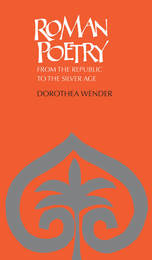
Meshing her own wit, verve, and gusto with that of the Roman poets she translates, Dorothea Wender strips both the cloak of awe and the dusty mantle of boredom from the classics.
Available for the first time in paper, these English verse translations of the major classical Roman poets feature hefty selections from the savage urban satire of Juvenal, the moving philosophy of Lucretius, the elegance of Horace, the grace and humor of Catullus, the grave music of Virgil, the passion of Propertius, the sexy sophistication of Ovid, and the obscenity of Martial.
Noting Wender’s “candor,” the Classical Outlook reported that in “20th-century terms, she makes the poems lively and pertinent.”
The Boston Globe said, “The conciseness is astonishing, the information [in the introductions to each poet] provocative. The freshness of the selections should do much to augment the audience for these poets and may even inspire examination of the originals.”
The best advice came from Wender herself: “Read these good poems.”

After his long exile in France and Argentina following the Spanish Civil War, Rafael Alberti’s final home in exile was Rome, where he wrote Roma: Peligro para caminantes (Rome: Pedestrians Beware). There, Romulus and Remus sneak down to the Tiber to suckle on feral cats, a jack of all trades pisses on the poet’s shoes, whistling as he walks away, and in the Campo de’ Fiori the poet compares sonnets with the wandering spirit of Giuseppe Gioachino Belli, all in the shadow of the glory of Rome’s imperial ruins.
Two suites of sonnets open and close the book, while in between, Alberti displays masterful poems in metered and free verse, rhyming couplets, and a numbered series of short poems. The blending of classical tradition with post-modern echoes the darkness and luminosity that exist within the poems, tinged with longing, nostalgia, love, as well as hope. In the end, the Eternal City is a refuge for Alberti:”I left for you all that I once held dear. / Oh Rome, my sorrow pleads, hold out your hands / and give me everything I left for you.”
This unique trilingual edition features exquisite and nuanced translations in English and Italian from the original Spanish by Anthony Geist and Giuseppe Leporace alongside visually evocative photographs of Rome by Adam Weintraub. Readers will want to take this poetic walk in Rome since what sometimes elicits caution, an aspect of danger, also becomes a destination for discovery.

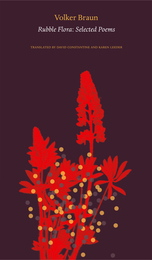
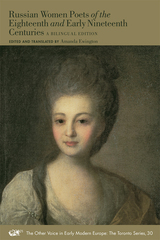
—Marcus C. Levitt
Professor, Department of Slavic Languages, University of Southern California
READERS
Browse our collection.
PUBLISHERS
See BiblioVault's publisher services.
STUDENT SERVICES
Files for college accessibility offices.
UChicago Accessibility Resources
home | accessibility | search | about | contact us
BiblioVault ® 2001 - 2025
The University of Chicago Press



